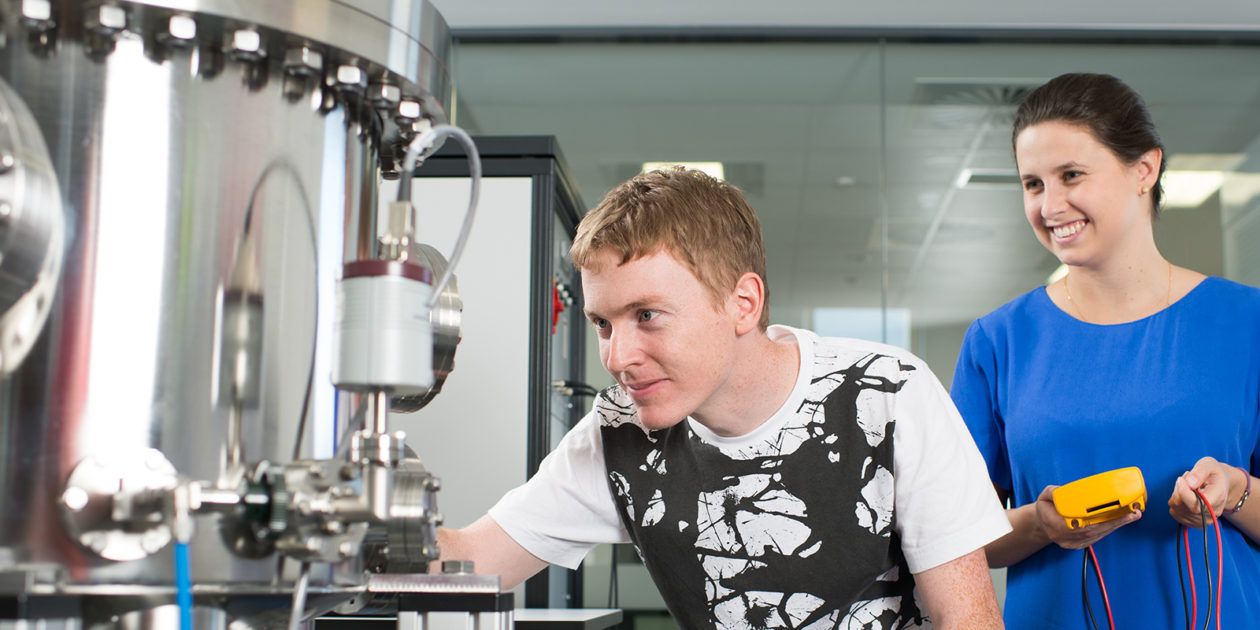Overview
Overview
Chemical engineering uses chemistry, physics and mathematics to convert raw materials or chemicals into more useful or valuable forms. You’ll explore the development, design and operation of processes for the extraction, conversion and recovery of materials. Throughout your studies, you’ll specialise in biosystems engineering, chemical engineering or oil and gas.
Extractive metallurgists are involved in plant design, development, operations and control, management and research. This course will provide you with sound training in minerals processing, hydrometallurgy and pyrometallurgy. You will also cover environmental considerations and mine finance and management.
In your first year you will complete the Engineering Foundation Year (EFY). The EFY builds a solid base of the fundamental concepts common to all areas of engineering. The EFY was developed in partnership with industry to create a curriculum that is reflective of engineering practice.
Studying for two semesters in Kalgoorlie will give you first-hand experience and contact with the minerals industry and its personnel, providing you with a level of knowledge and awareness which is unavailable elsewhere. You will learn from highly qualified and experienced staff, and also industry experts who visit to lecture on specialist topics. To ensure a well-rounded and fully hands-on education, you will undertake field trips and at least 12 weeks of professional experience prior to graduation.
To satisfy professional requirements, students must complete at least 12 weeks or equivalent of exposure to professional engineering practice. This requirement can be met by appropriate work experience or through a combination of technical and non-technical activities. Students must demonstrate that they have met these requirements by using a formal Log Book to record their professional experiences during the period of their degree study.
Please refer to the handbook for additional course overview information.
- Metallurgist
- Chemical Engineer
What you'll learn
- apply scientific, process and metallurgical engineering principles to process engineering design and development, including sound risk management, environmental and occupational health and safety practice
- think critically and creatively to generate innovative and optimum solutions
- identify, evaluate and synthesise information from a range of sources to optimise process engineering design and development
- communicate effectively in ways appropriate to the discipline, audience and purpose
- use appropriate information, process and metallurgical technologies (recognising their advantages and limitations) in the design and development of sustainable process systems
- engage in continuous education, training and research, and take control of their own learning and development
- recognise and apply international standards and best practice in process and metallurgical engineering
- demonstrate respect for cultural diversity
- be ‘career ready’ for the process engineering profession, demonstrate leadership qualities, and work ethically and professionally both within a team and independently
